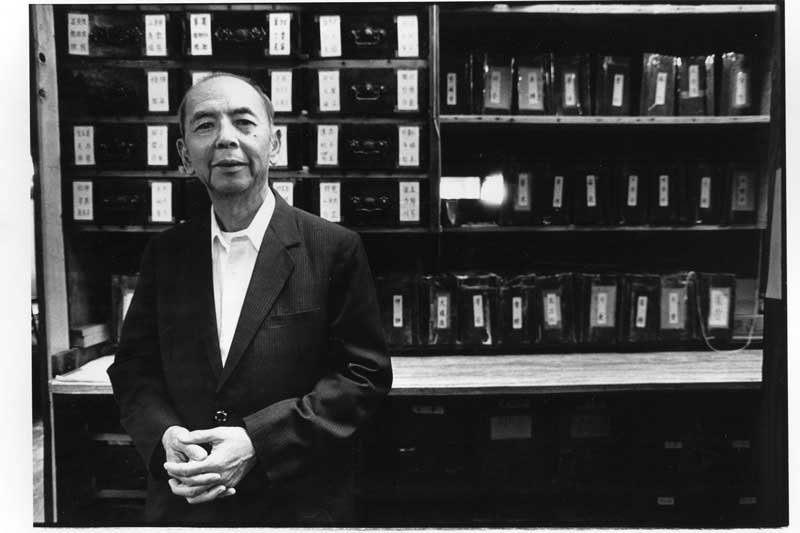About Juliana Chin Isogai
Juliana Chin Isogai
 My informal education began at home when I was about five years old. My father would bring some herbs home and tested me to see if I could recognize the herbs just by the smell. Every time I got it right, he gave me a quarter. This was a fun game at first, and I was a natural at it. I loved earning a little money when I was a small child. “I fix ill people using Traditional Chinese Herbal Medicine techniques. I dig deep to find the root cause of their illness and prescribe custom-made herbs. I also educate and offer support to my patients so they can continuously improve and maintain their health long after they stop taking herbs.”
My informal education began at home when I was about five years old. My father would bring some herbs home and tested me to see if I could recognize the herbs just by the smell. Every time I got it right, he gave me a quarter. This was a fun game at first, and I was a natural at it. I loved earning a little money when I was a small child. “I fix ill people using Traditional Chinese Herbal Medicine techniques. I dig deep to find the root cause of their illness and prescribe custom-made herbs. I also educate and offer support to my patients so they can continuously improve and maintain their health long after they stop taking herbs.”
But my father had in mind more than a game, though. He recognized that I possessed an extraordinary sense of smell—a keen sense of smell is crucial if you want to become a good herbalist. He saw this potential for me to follow in his footsteps very early on—because I could identify hundreds of herbs by their smell, even as a little girl.
You can find many facts about herbs in a textbook. But it would be a big mistake to think you can know everything you need to about herbs simply by memorizing facts. Herbalists work with hundreds of herbs and must know everything about the various types. Aspiring herbalists need to learn their properties as well as how they interact when combined. Some are detoxifying, and some are toxic; however, even a toxic herb can be an effective medicine when prescribed in the right amount for a particular condition.
Impressed by my unusually keen sense of smell and taste, my father decided to push me further to see if I had what it would take to become his successor. Before I was allowed to apprentice under my father at the age of 12, he hired a Chinese tutor, from Beijing. At first, I didn’t understand why. I already spoke fluent Cantonese. But he thought my writing and reading needed improvement.
The tutor taught me how to read and write in old traditional Chinese. These characters are more complex than the characters used in modern Chinese. At first, I hated giving up hours of after-school leisure time for this study. I whined and complained—and yet I prevailed. Later, it made perfect sense to me and I came to appreciate what my father had done for me.
You see, my father had a huge collection of valuable Chinese medicine textbooks—compilations of theories and formulas by the greatest herbalists from different eras in Chinese history. Some formulas in these texts are thousands of years old. Many of the ancient formulas are still being used in my practice and are the foundation upon which my prescriptions are based.
But I would have never been able to understand these texts if my father hadn’t hired a Chinese tutor for me. Thanks to him, I can now effectively use and customize these formulas for complex modern illnesses. I treat patients in the same methods as Chinese herbalists have for centuries. I typically spend an hour or two for each patient’s initial consultation so I can understand what they are going through, what kind of pain or discomfort they are experiencing, and most importantly what caused them to become ill. In Chinese medicine, there are no cookie cutter solutions. Every patient is different and has a unique set of symptoms and problems.
Contact Juliana Today
Hen Sen Chin
Hen Sen Chin started helping his patients in 1951 and continued his practice for more than 60 years.
Trained in China at the Ling Nam Instituteof Chinese Medicine, Hen Sen practiced in Hong Kong before moving to Seattle and establishing his practice. Here is a snap shot of his office in Seattle’s International District.
Following in Hen Sen’s footsteps, his daughter Juliana continues to focus on understanding patients, finding out why they are ill, then providing advice and the best custom-tailored solution for each patient.
Are you looking to optimize your health?
Take Juliana Isogai’s free assessment and see if traditional Chinese medicine can help get your health back on track!